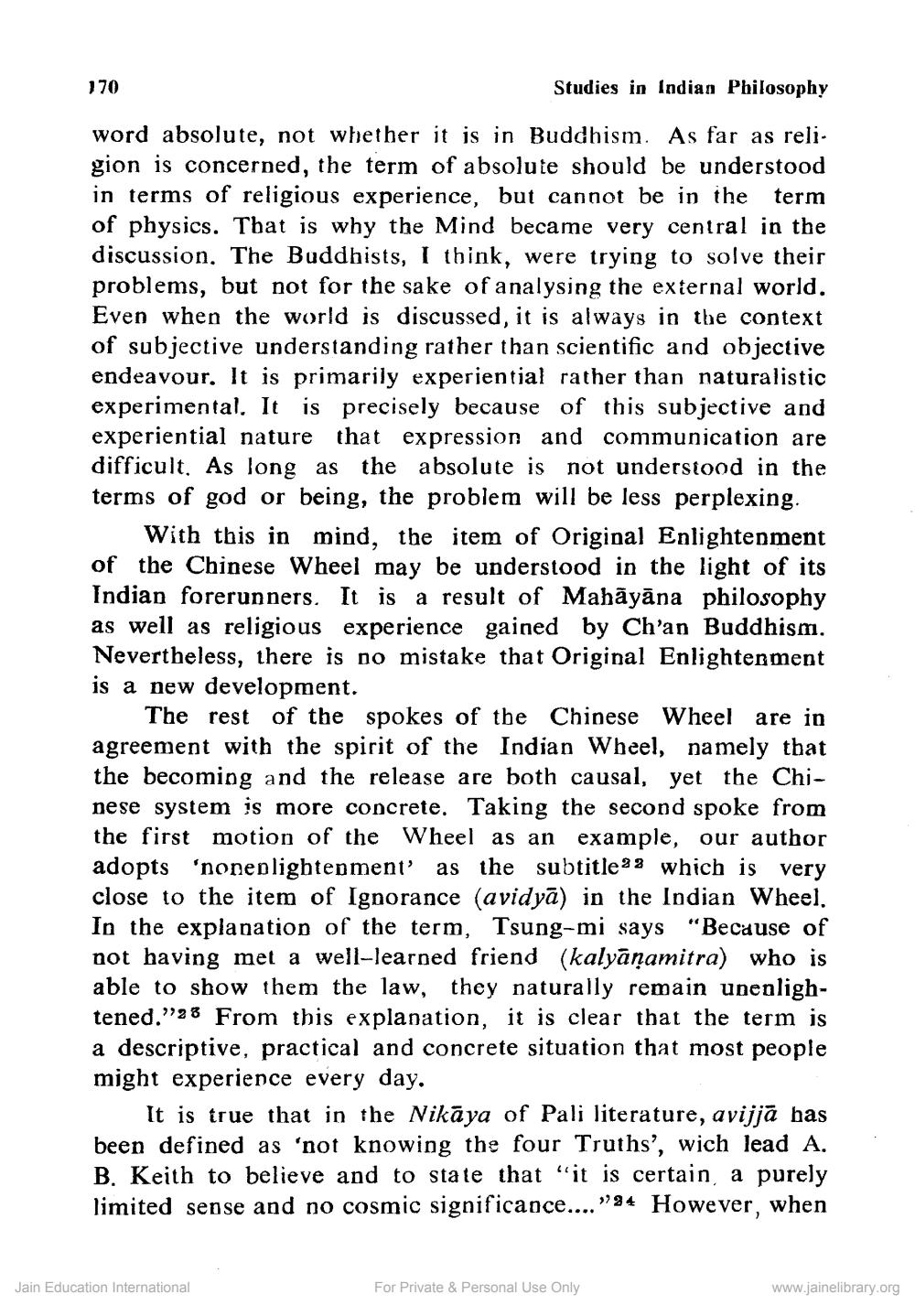________________
Studies in Indian Philosophy
word absolute, not whether it is in Buddhism. As far as religion is concerned, the term of absolute should be understood in terms of religious experience, but cannot be in the term of physics. That is why the Mind became very central in the discussion. The Buddhists, I think, were trying to solve their problems, but not for the sake of analysing the external world. Even when the world is discussed, it is always in the context of subjective understanding rather than scientific and objective endeavour. It is primarily experiential rather than naturalistic experimental. It is precisely because of this subjective and experiential nature that expression and communication are difficult. As long as the absolute is not understood in the terms of god or being, the problem will be less perplexing.
170
With this in mind, the item of Original Enlightenment of the Chinese Wheel may be understood in the light of its Indian forerunners. It is a result of Mahāyāna philosophy as well as religious experience gained by Ch'an Buddhism. Nevertheless, there is no mistake that Original Enlightenment is a new development.
The rest of the spokes of the Chinese Wheel are in agreement with the spirit of the Indian Wheel, namely that the becoming and the release are both causal, yet the Chinese system is more concrete. Taking the second spoke from the first motion of the Wheel as an example, our author adopts 'nonenlightenment' as the subtitle which is very close to the item of Ignorance (avidya) in the Indian Wheel. In the explanation of the term, Tsung-mi says "Because of not having met a well-learned friend (kalyāṇamitra) who is able to show them the law, they naturally remain unenlightened." From this explanation, it is clear that the term is a descriptive, practical and concrete situation that most people might experience every day.
It is true that in the Nikaya of Pali literature, avijjā has been defined as 'not knowing the four Truths', wich lead A. B. Keith to believe and to state that "it is certain, a purely limited sense and no cosmic significance.... "94 However, when
Jain Education International
For Private & Personal Use Only
www.jainelibrary.org




